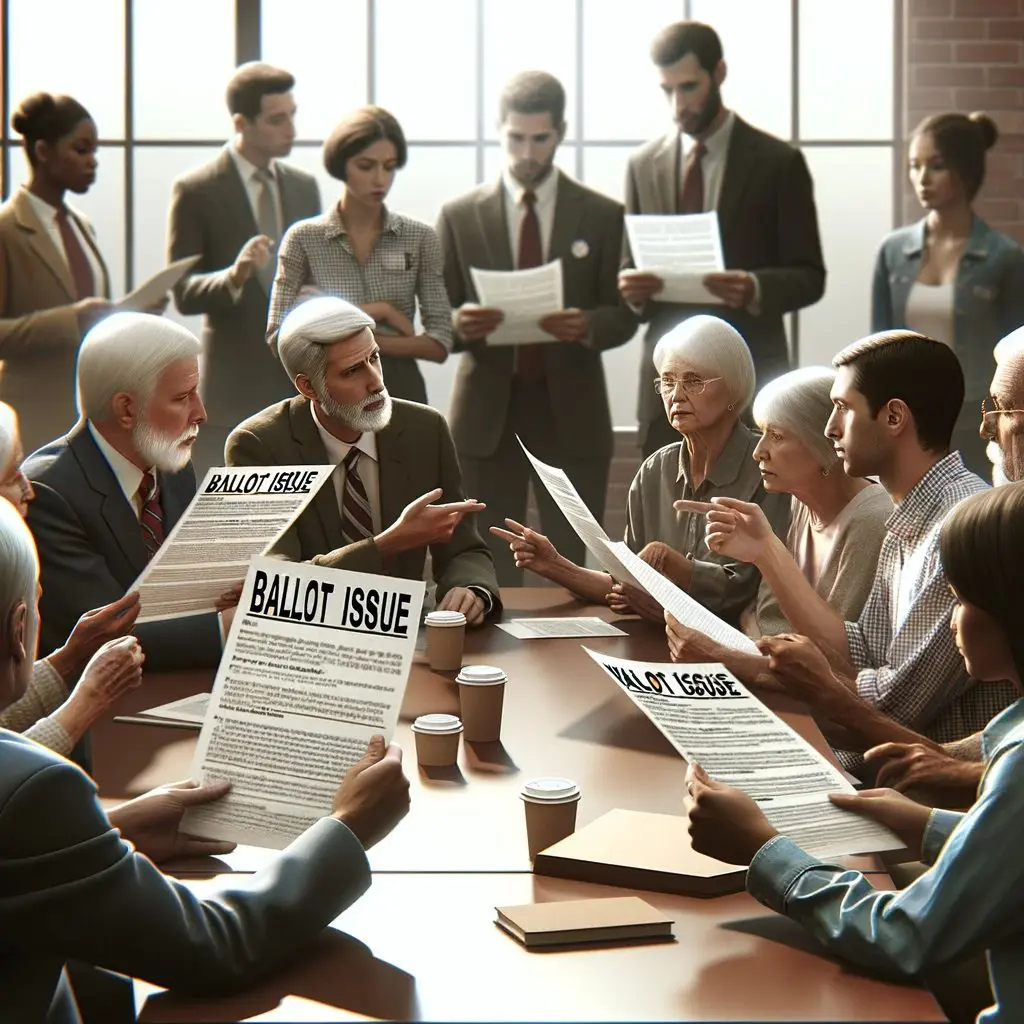Ballot issues, encompassing a wide range of legal and electoral processes, play a pivotal role in shaping the democratic fabric of society. This article delves into the complexities surrounding these issues, highlighting the legal challenges, court interventions, and their impact on the electoral landscape.
Understanding the Spectrum of Ballot Issues
Ballot issues refer to various legal and procedural elements in elections, including ballot initiatives, referendums, and candidate eligibility. These elements form the cornerstone of direct democracy, allowing voters to directly influence lawmaking and hold elected officials accountable. The intricate nature of these issues often leads to legal scrutiny and judicial involvement, ensuring the integrity and fairness of the electoral process.
Legal Challenges and Court Oversight
The legal landscape of ballot issues is marked by diverse challenges ranging from signature validation for ballot initiatives to disputes over the wording of ballot descriptions. Courts frequently intervene to resolve these disputes, as seen in cases like North Dakota’s term limits initiative, where the state Supreme Court ordered the placement of the initiative on the ballot despite signature inconsistencies perceived by the state secretary.
Similarly, courts often review ballot descriptions to ensure they are clear, unbiased, and informative. This oversight is crucial, as misleading or ambiguous language can significantly impact voter understanding and the outcome of ballot measures.
Case Studies: Varied Approaches to Ballot Issues
Examining specific instances sheds light on the varied approaches to ballot issues across states. For example, the Colorado Supreme Court’s decision to apply the Disqualification Clause of the Fourteenth Amendment to a presidential candidate demonstrates the court’s role in interpreting state election laws and constitutional provisions. In contrast, the Minnesota Supreme Court’s decision in a similar case highlighted the deference given to political parties in determining candidate eligibility for primary elections.
The Role of State Laws in Shaping Ballot Issues
State laws play a crucial role in defining the framework for ballot issues. These laws vary significantly across states, influencing how ballot measures are proposed, reviewed, and adopted. For instance, some states have expedited procedures for preventing errors on the ballot, like placing a constitutionally disqualified candidate on the primary ballot.
The Impact of Ballot Issues on Democracy
Ballot issues significantly impact the democratic process. They provide a means for citizens to directly participate in lawmaking, offer a check on legislative bodies, and ensure that elected officials are responsive to the public’s will. However, the varying state laws and judicial interpretations also highlight the complexities and challenges in maintaining a fair and equitable electoral system.
Case Study: Colorado’s Application of the Disqualification Clause In Colorado, a notable legal challenge occurred over a presidential candidate’s eligibility. The Colorado Supreme Court applied the Disqualification Clause of the Fourteenth Amendment, ruling that the candidate, who had engaged in an insurrection, was ineligible to be on the primary ballot. This case illustrates how state courts can interpret federal constitutional provisions in the context of ballot issues, emphasizing the role of the judiciary in safeguarding the integrity of elections.
Case Study: Minnesota’s Approach to Candidate Eligibility Contrasting with Colorado, Minnesota’s approach to a similar issue of candidate eligibility for the primary ballot highlights the autonomy of political parties in such decisions. The Minnesota Supreme Court found that the choice of candidates for a primary election was a matter for the political party to decide, not the courts. This case underscores the diversity in state approaches to ballot issues and the balance between legal oversight and political party autonomy.
Example: Florida’s Ballot Initiative on Marijuana Legalization In Florida, a proposed 2022 ballot initiative for the legalization of marijuana was struck down by the Florida Supreme Court. The court ruled the ballot summary misleading, as it implied complete legalization, which conflicted with federal laws. This example demonstrates how courts review the language of ballot initiatives to ensure clarity and prevent misleading voters.
Example: Michigan’s Voting Rights Initiative In Michigan, a 2022 voting rights initiative faced opposition from certain members of the Board of Canvassers but was ultimately allowed on the ballot by the Michigan Supreme Court. The court’s intervention highlights the judicial role in ensuring that valid initiatives, even those facing political opposition, are presented to voters.
Conclusión
These case studies and examples illustrate the complex legal landscape surrounding ballot issues. They demonstrate how courts play a critical role in interpreting election laws and constitutional provisions, ensuring that ballot issues are handled fairly and in accordance with democratic principles. As legal challenges and political contexts evolve, the treatment of ballot issues continues to shape the democratic process.
Ballot issues, with their legal intricacies and implications, are fundamental to the functioning of democracy. Understanding these issues is key to navigating the electoral landscape and ensuring the rights and voices of voters are protected and heard. As the legal landscape evolves, so too will the nature of ballot issues, continually shaping the democratic processes that govern societies.
Fuentes:
- State Court Report: “Why Have States Diverged on Trump’s Ballot Eligibility?”
- Ballotpedia: “Civil and criminal trials on the ballot”

